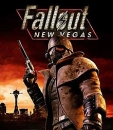Full interview from gamesindusrty.biz
That the games business is in a process of change is a statement very few seem willing to argue with - but how that change is manifesting itself is slightly different everywhere you look.
As a studio owned by Microsoft, Rare has recently been tasked with projects such as the Xbox 360 Avatars, and is currently working on Natal-related ideas - but as working practices change, new methods are needed to maintain efficiency. Here, studio head Mark Betteridge outlines the deeper thinking behind the company's move to open a new, media-savvy studio in Fazeley - and why the wider industry may indeed follow suit.
Q: What benefits will the new studio bring to Rare?
Mark Betteridge: Well, we've been in business for a long time, and teams have become somewhat unwieldy in the development process - very inflexible, very expensive. Over the last six or seven years it's really started to get out of hand, and companies and teams that were having great success before are realising the same thing.
We've thought for some time that the way teams have become very bloated and inflexible, with large numbers of people working on a project - it becomes inefficient to develop games that way, and to be successful developing games that way.
Obviously you can still create products in that way, but in terms of a business, and a positive profit and loss, it's not really effective.
Also, it's about the core team maintaining focus on a project which can have in excess of 100 people at any one time.
Now, we believe very firmly that Twycross is in our DNA, it's still going to be very much the centre of of the creative hub of Rare, but the way that development demands are now we need the availability of a greater skillset of people - and we also need them on a time frame that's more flexible, rather than just employing everybody full time with whatever expertise they have.
It's a model that the full industry, for example, has used very successfully for many, many years - and in terms of ourselves here that Twycross will continue to be the core creative hub. But the demands of what we're looking to do with our projects, and the quality, means that we'll have way in excess of the number of people that we could actually sit here should we want to.
Now, outsourcing is something that a lot of companies have done - especially with art - but it's not a silver bullet. We believe more in a term I've used before and that's insourcing.
[Xbox 360] Avatars was the perfect example of a small project that we were able to put forward to Microsoft, which was then green-lit and went into full production... we developed that project with just the core people here as employed by Rare, probably four or five people was all it was.
But there was sometimes in excess of 30 people, sometimes contractors, working on that project. That's a simple example, but it shows how we're able to think - creatively the idea is the diamond, and to bring that to fruition you need a lot more people in flexible and specialised roles than you're used to.
By looking at an urban location like Birmingham it means we'll be able to attract the right skillset, but also with the right level of flexibility we need to be able to draw on that expertise as and when we need it.
So there were several reasons why we felt that keeping the creative vision and direction very much at Rare, but being able to control a flexible production facility along with a staff that are able to work on those terms much more effectively in an urban location, was a good thing.
Having said that, I could be at the new facility within 30 minutes of leaving Twycross, so it's not really very far away - but we're very confident in this type of insourcing model. We're recruiting the people, managing the people, mentoring the people, and we're really excited about the extra workload and project focus we can put in key areas that just wouldn't have been possible before.
Q: Will it mean any restructuring for the team at Twycross?
Mark Betteridge: Twycross will very much remain the centre of the creative direction of Rare. Before, we used to have some Portakabins here... we keep the creative hub here, but we did have contractors here, temporary staff here and some temporary office. That's how Avatars was done, here.
Now, that model showed itself to be efficient, effective, flexible - everything that we were looking for, so we're basically taking that to the next stage. We're not going to put more temporary offices on the site here, we're going to manage the process at another location where those people with those skillsets are in abundance, compared to our rural area.
And we can take that onto projects that are much bigger than Avatars - but the creative hub will definitely remain at Twycross, there won't be a big restructure here or anything of that order.
Q: Obviously numbers will change over time, due to the nature of the facility, but what sort of headcount will it be able to house?
Mark Betteridge: Well, ballpark, we've been looking at in the region of 40-50 people in core development and probably a similar number again in test. Now, test is an important one because while we have a large test area in Twycross which has expanded over the years as projects have gotten bigger, with Natal there are two aspects of it, which are both quite obvious.
First of all, because of the nature of Natal - and it would have been exactly the same with the Wii - to test it properly you need a larger physical space than you had before.
But also with Natal, we believe test is extremely important to get the balance and the content of the game right - because a lot of the people that Microsoft will be appealing to with this technology won't be traditional games players, and we need to test with a wide range of people, different ages, demographics, and so on.
I don't mean testing in the sense that does the game crash, or is the artwork correct - I mean proper user testing. Also with Natal there'll be a huge variety in the set-ups that people will have in their homes, so it's very important that we optimise any title to work in any of them.
So the test process is something that we want to take control of, to own the feedback that we get - and that demands a large area, as well as a large number of people that wouldn't be there all of the time. It'll probably be in patterns where people will come in for a couple of hours, depending on what the testing is - so again, in a central location we're able to do that very easily.
There's also quite a digital hub that's built up in the Fazeley area, with other digital industries, universities and like-minded people, and we think we're going to be the perfect complement to that. With the attraction of Microsoft, Rare and Natal we really do expect we'll have no problem whatsoever attracting some of the best talent around.
Q: You mentioned project sizes going up - team sizes have grown, and in general revenues have too until last year. But with a more fragile economy, do you think others are likely to look at this business structure and follow suit?
Mark Betteridge: Absolutely. Old habits die hard, and a lot of people in the industry are clinging on to old methods - and have been for some time. I think it'll need a mindset change, and sometimes that's dictated by business conditions - if you're going out of business you better find a new way to work, that's something that will force someone's hand.
Fortunately for us, with Microsoft, we're doing it from a position of financial and development strength, so we can really dip our toes in the water and find out what works best for us in the way that games should be built - but I would definitely see other people going down the road of insourcing, by employing and mentoring people, in order to keep our tight creative loop.
Other people have been doing traditional outsourcing of for many years, and we have some experience of it, but for us - and for fast iteration on fun gameplay - it's very important that we have a hands-on contact with how this content will be created.
The creative and production sides are clearly defined at Rare, but the actual manpower for the production will be done both at Rare and the new site. It's about the mindset change to do it that way, rather than just growing team sizes from six people, to twenty, to fifty and now a hundred-plus...
That's really just a scaled-up version of an old method, rather than a forward-thinking method that's about proving our core creative idea works, is fun, and has the chance to sell millions of units. Once we have that, then let's build out a full production schedule - and other industries do exactly that. Let's define what it's going to take, how much it's going to cost and manage the process through.
It's a very easy situation to then take to Microsoft - this is our opportunity, this is our cost, this is how we see the project working out - to then make the decision if that's the best project for us to build, or a Plan B.
Being able to do that from a position of strength - walking up to the production line, if you like, and then pressing the button or not - and having the full management and production capability in order to press that button, and the ability to immediately bring something up to production, is a huge advantage.
I know games can take two, three, four years to make, but it is a fast-moving industry and it always will be, based around technology. For Natal, we've really had to pull out the stops to do what you'll see us do with that, and you need to be flexible. It's going to be critical I think for the future success of this industry.
Q: Something a little more like film production - not completely, because that's probably not entirely practical...
Mark Betteridge: We will continue to source and recruit the best people we can, with the most creative ideas. The simple way I look at it is that if we're going to build two or three titles, let's have 20 or 30 ideas all built from concepts and designs here at Rare. Let's cost and project each one of those, and what we think the opportunity could be, and then let's go right up to the wire and pick three.
If you can do it from a position of strength that way, that's much better than having a big team and having to constantly focus on the payroll, the bills... having to make something quick and get it signed with a publisher. You're constantly on the ropes with that method - and creativity is fragile.
To not have to have a huge cost base, but still come up with lots of potential concepts and have a more robust production forecasting method in terms of headcount and costs and opportunity... If you have all that information you can make much clearer decisions about your strategy - where you're putting your focus and manpower, marketing money and so on.
Q: So how do you think the rest of 2010 looks for the industry in general terms?
Mark Betteridge: I think the industry's in a strong position because of the interest in it, and the strong revenues being generated by the big titles are right up there with any media at all. The only way it's gotten a bit out of hand - and why we're trying to be a bit ahead of the curve - is with the development costs, expenditure and time frames. They've not moved forwards quite as much as they should have, and there are games that are selling millions of units, but not generating the return for those businesses to enable them to reinvest and make the next great game.
The inefficiencies in the way that some things are being done mean that some people are running to stand still - you need to have a hit just to make your next game. The industry's got a lot of innovation coming this year, there's a lot of interest in it, we're bringing in other types of people that weren't customers before.
We're very proud of what we did with Avatars, what we did with Sky and the virtual living room - we're very pleased with the results, and what we've shown different content can mean to people, and there's a lot of innovation in that area that I think will bring new revenue streams.
So it's a very exciting time for the industry, and for us it's about focusing on how we can maximise the opportunity by being efficient and flexible. That's why we're making this move.
Mark Betteridge is studio head at Rare. Interview by Phil Elliott.
 Leatherhat on July 6th, 2012 3pm. Vita sales:"3 mil for COD 2 mil for AC. Maybe more. " thehusbo on July 6th, 2012 5pm. Vita sales:"5 mil for COD 2.2 mil for AC."
Leatherhat on July 6th, 2012 3pm. Vita sales:"3 mil for COD 2 mil for AC. Maybe more. " thehusbo on July 6th, 2012 5pm. Vita sales:"5 mil for COD 2.2 mil for AC."































































